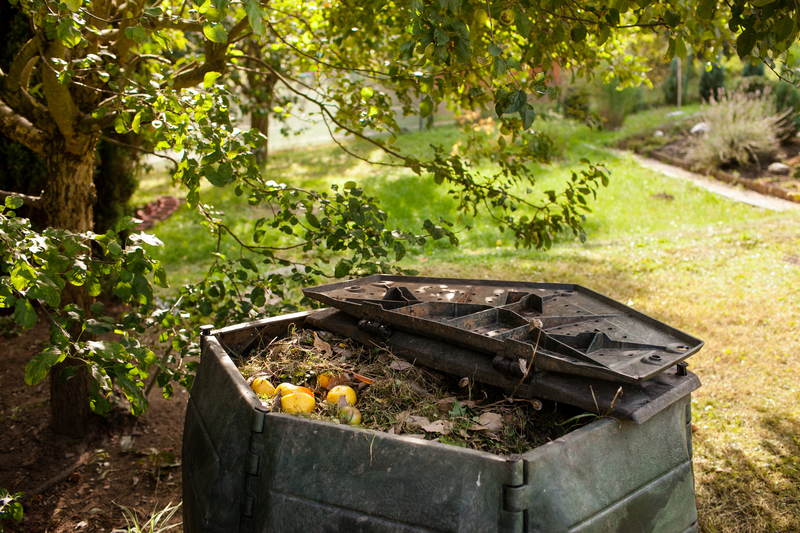Green Living: How to Create an Eco-Friendly Home
As the world embraces more sustainable practices, green living has become a cornerstone of modern home design. Creating an eco-friendly home not only benefits the environment but also improves your quality of life by reducing energy costs and promoting a healthier living space. In this article, we explore various strategies to turn your home into an eco-friendly haven.
Understanding the Importance of an Eco-Friendly Home
The shift towards sustainability is driven by the growing awareness of environmental issues. An eco-friendly home reduces your carbon footprint and promotes energy efficiency. Beyond environmental benefits, a sustainable home can improve air quality, reduce toxins, and offer long-term savings through efficient resource use.

Energy Efficiency: The Heart of Eco-Friendly Living
1. Utilization of Renewable Energy Sources
Investing in renewable energy sources is essential for a green home. Consider installing:
- Solar Panels: Harness the sun's power to generate electricity and reduce dependency on non-renewable energy.
- Wind Turbines: If space allows, small wind turbines can complement solar energy systems.
2. Energy-Efficient Appliances
Choose appliances with Energy Star ratings to ensure maximum efficiency. Such appliances use considerably less energy without compromising on performance.
Effective Insulation and Climate Control
1. High-Quality Insulation
Proper insulation maintains your home's temperature, reducing the need for excessive heating or cooling. Consider eco-friendly materials like:
- Sheep Wool
- Recycled Cotton
- Hemp
2. Smart Thermostats
Install smart thermostats to optimize energy use in heating and cooling. These devices learn your schedule and adjust temperatures automatically, conserving energy and lowering utility bills.
Water Conservation Techniques
1. Low-Flow Fixtures
Reduce water usage by upgrading to low-flow faucets, showerheads, and toilets. These fixtures maintain pressure while using less water.
2. Rainwater Harvesting
Installing a rainwater harvesting system can provide a supplemental water source for gardening, cleaning, and in some cases, household use.
Sustainable Materials and Furnishings
1. Eco-Friendly Construction Materials
When building or renovating, choose sustainable materials such as:
- Bamboo: A rapidly renewable resource, ideal for flooring and cabinetry.
- Reclaimed Wood: Repurposing old wood reduces demand for new deforestation.
- Recycled Steel: Using recycled metals reduces the carbon footprint of building projects.
2. Green Furnishings
Select furniture made from sustainable or recycled materials. Opt for pieces that are durable and timeless, reducing the need for frequent replacements.
Creating a Healthier Indoor Environment
1. Use of Non-Toxic Paints
Conventional paints can release volatile organic compounds (VOCs) into the air. Opt for low-VOC or VOC-free paints to improve indoor air quality.
2. Indoor Plants
Integrate indoor plants such as aloe vera, snake plant, or peace lilies to naturally purify the air.
Waste Reduction and Management
1. Composting
Establish a composting system to recycle kitchen waste into nutrient-rich soil. Composting reduces landfill waste and enriches your garden's soil.
2. Recycling
Implement a robust recycling program for paper, plastics, glass, and metals. Educating household members about recycling practices enhances participation and effectiveness.

Landscaping for Sustainability
1. Native Plant Gardening
Choose native plants for your garden to reduce water use and support local wildlife. Native plants require less maintenance and provide food and shelter for local fauna.
2. Green Roofing
Consider a green roof, which is covered with vegetation. Green roofs improve insulation, reduce rain runoff, and contribute to urban heat reduction.
Conclusion: The Path to a Sustainable Future
Adopting a green lifestyle by creating an eco-friendly home contributes positively to the environment and enhances personal well-being. By incorporating these strategies, you can reduce your carbon footprint, lower energy costs, and create a healthier living space for your family. As we embrace sustainability, our homes become part of a collective effort towards a brighter, greener future.